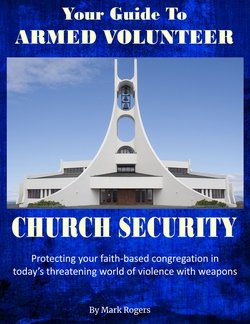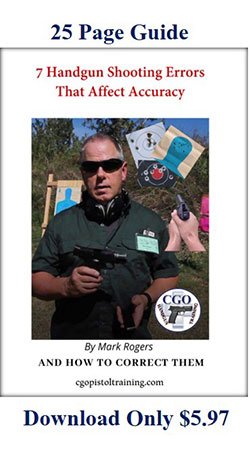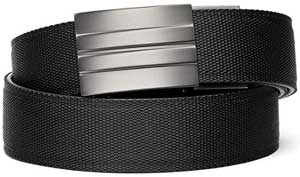How To Choose Your Self Defense Pistol
How to choose a self defense pistol is not as complicated as it seems, when you're brand new to shooting, or to self defense, concealed carry, etc.
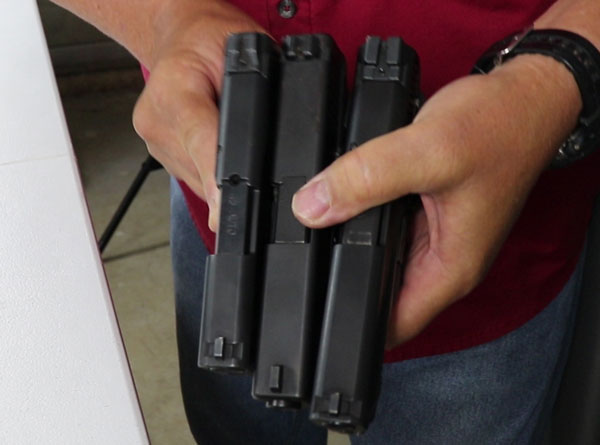
It does, however require some basic knowledge and considerations to choose the best one for you. 'Best one for you' being the key phrase.
So, in getting this started, answer one question, that will lead to all other decisions in choosing your handgun.
What Are My Specific Needs For A Self Defense Gun?
The answer to that question determines everything that follows.
Here are the basic self defense needs, and what type gun will best fit those needs:
1) Close Quarters Self Defense Pistols
Personal self defense in close quarters or short distances. A realistic assessment of what most people will need if they have the option of only one gun.
A gun that you can take with you under the broadest range of conditions and conceal the easiest.
A large sub-compact pistol. I say 'large' when talking about the smallest class of guns, because it should be a gun you can get a full grip on, or as close to a full grip as possible.
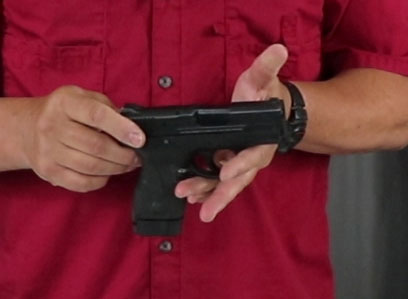
These will generally be guns with barrels that are around 3 inches with reduced grip length.
They are the easiest to conceal in a belt holster, inside the waistband holster, or belly band.
The best of them will be guns that are at least satisfying to shoot, and that you can improve your skill with.
They will, however, be the most challenging sized pistol to learn to control and shoot accurately. No worries, though. If you are a man or woman in reasonably good health, you'll be able to practice to proficieny with these very valuable type guns.
2) Variable Condition Self Defense Pistols
A self defense handgun for broader self defense needs. The ability to use a gun that will be larger, easier to access, control, and shoot accurately. But a gun that will be more challenging to conceal.
This will be a gun in a compact size.
'Compact' in gunspeak is a handgun that is a slightly downsized version of a full size duty pistol.
But you lose little from the full size models, in your ability to handle and shoot a compact accurately.
For self defense considerations, a good choice for areas that are isolated, or where a higher round count, and better shooting dynamics are needed.
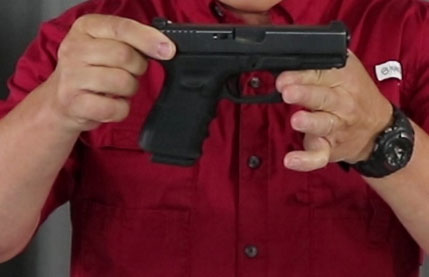
Better than a subcompact for crowded areas, where more control is needed also.
3) A Self Defense Pistol For Large, Crowded Areas
Primary carry guns for crowded environments. Where control, maximum accuracy, high round count, and fast access would all be critical if the unthinkable were to happen.
A gun that would be the choice for self defense if you had to shoot at a perpetrator that was shooting into a crowd, and you had to minimize your chance of hitting an innocent person running for their life.
This is where a full size duty pistol will come in.
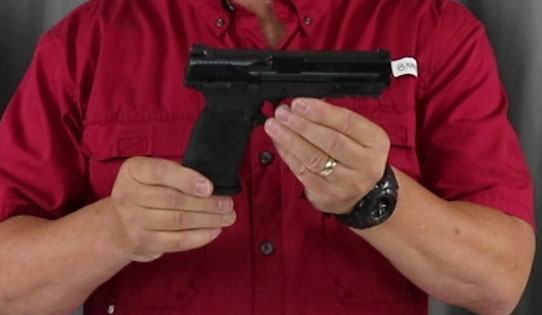
Guns that can be carried concealed, but are more suitable for belt holster carry.
I carry one to church, and at any time when I am going to be in crowds, where it is legal to carry.
4) A Small Revolver For Close Quarters Self Defense
Finally, and seldom recommended by me, there is the possibility that a small revolver may be a good choice for you, in lieu of a sub-compact semi-auto ......
But that's doubtful.
For a first self defense handgun, the long, heavy, double action trigger pull of a revolver is not often a good primary, first self defense handgun choice.
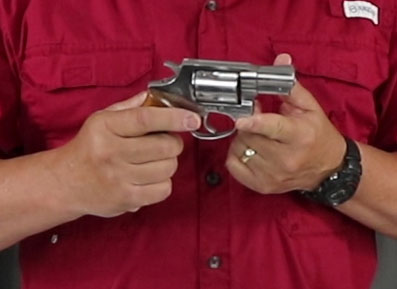
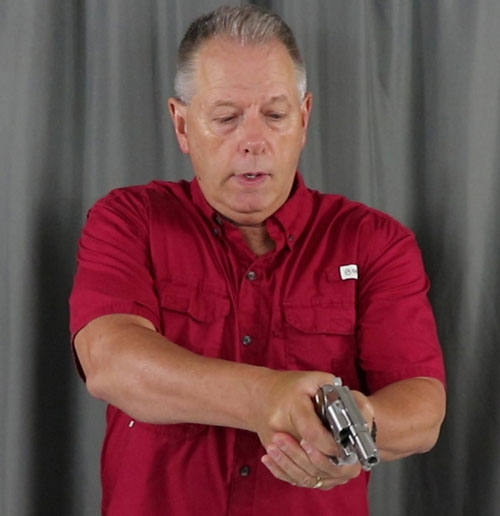
Even on revolvers with what is considered a 'good' double action trigger pull, you're looking at around 10lbs of pull to get it fired.
That makes double action revolvers a questionable choice for all but very experienced shooters who practice with them regularly.
In an emergency self defense situation, attempting to cock the hammer prior to firing is not likely to produce a positive outcome.
For detailed explanations, watch the video below. Or, you can watch it on YouTube.
The guns shown are representative of seemingly endless good striker fired handguns, made by most major manufacturers.
They are simple, effective, dependable, and are easy to train with for accuracy and skill.
So there, in simple terms are the considerations for how to choose your self defense pistol (or revolver).
Consider where you go, what you do, how much practice you intend to perform. The lighter and smaller the gun you choose, the more challenging it will be to obtain good, consistent accuracy.
But what you choose should reflect on what probable self defense scenarios you personally need the gun for.
One last consideration. If you are new to shooting, or new to self defense handguns in general, get one gun only to start.
Get familiar with it. Learn it. Become proficient with it.
Before moving on to a second or third self defense handgun
Here's to your good shooting. Stay safe. ~Mark Rogers
Get the Armed Volunteer Church Security Guide - Now on Amazon Kindle.


